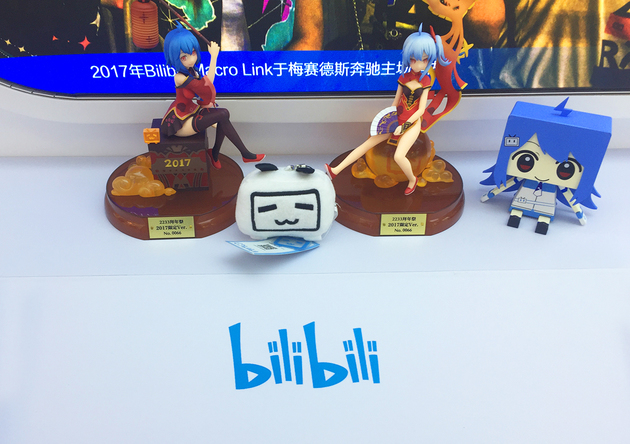
Photo/NBD
Oct. 10 (NBD) -- Tencent last Wednesday announced an additional 318 million U.S. dollars investment in Bilibili, China's leading video site centering on animation, comic, and game (ACG), increasing its shareholding from 5.2 percent to 12 percent. This marks the tech giant's first investment in the content domain after its major organizational restructuring announced in late September.
Tencent first invested in Bilibili in the latter's series D financing round in 2015 when it was competing with Alibaba to win the younger generation. Now Bilibili has become the biggest gathering place for ACG lovers in China, and what Tencent sees in the online entertainment platform is not only the huge amount of Gen Z users (people born between 1990 and 2009), but also the game distribution capability.
According to data from China's leading big data supplier QuestMobile, as of December 31, 2018, about 81.7 percent of Bilibili users belong to Gen Z, who has the greatest potentials for service consumption.
Winning future consumers is the obvious consideration behind Tencent's investment, while the less obvious reason is Bilibili's strength in games.
It's no secret that Bilibili's revenue mainly comes from games, and most of the games are catered to ACG lovers. A longtime user told NBD that Bilibili is the only place where he downloads games. The site has already become a major distribution channel for anime games.
Tencent, in contrast, has no anime games comparable to the immensely popular Onmyoji, The End of School, or Fate/Grand Order. This makes Bilibili's strong ability in anime games extremely attractive to Tencent.
Tencent's ACG business dates back to 2012, when its Interactive Entertainment Group (IEG) established Tencent Animation & Comics to pursue top IPs (intellectual properties), which in China's entertainment industry refers to typical products with certain influence.
From 2014 onwards, Tencent Animation & Comics has been increasing financial support for Chinese animation and comics contents, having signed several IPs with generous offer and cooperated with other companies and studios to produce original animation works.
In Tencent's understanding, the ACG economy starts with incubating star anime IPs, then turning them into games, movies, literature and various kinds of spin-offs, and eventually making them a part of popular culture.
The ACG market is huge. According to statistics, there are currently 174 million people born after 1990 across China, and roughly 92.8 million of them are ACG lovers. They are willing to pay for comics, animations, spin-off products, voice actors/actresses and virtual idols. On average, an ACG user spends 1,700 yuan (246.1 U.S. dollars) on spin-off products every year, according to statistics.
Animation and comics companies profit mainly from subscription fees and IP development, an insider tells NBD, and the business model is not stable or mature. But Tencent has first-mover advantages with so many IPs in hand.
Email: limenglin@nbd.com.cn


 川公网安备 51019002001991号
川公网安备 51019002001991号





